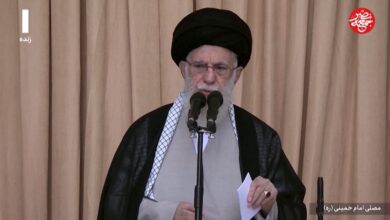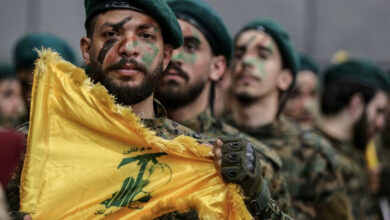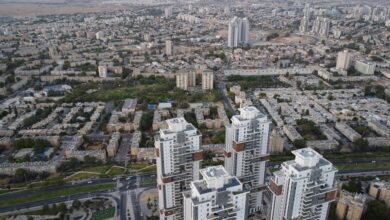Reports of trouble in Sinai remain on the front pages of privately-owned papers, and only state-run Al-Ahram leads with other news, ranging from Egypt's support for Libya's revolutionaries to the adjourned prosecution of former Housing Minister Mohamed Ibrahim Suleiman. A meeting between Field Marshal Hussein Tantawi, head of Egypt's ruling Supreme Council of the Armed Forces (SCAF), and Mahmoud Jibril, head of the executive board of Libya's National Transitional Council (NTC), focused on ways in which Egypt could support Libya in its upcoming nation-rebuilding efforts, according to Al-Ahram, in what looked like the first pangs of Libyan-Arab diplomacy following the apparent ouster of Libyan leader Muammar Qadhafi.
Sinai, however, is the lead story in the rest of Sunday's newspapers. Privately owned Al-Shorouk runs a lead story from the ground, detailing how the Arish hospital in North Sinai received the head of a suicide bomber who blew himself up on 19 August close to the Egypt-Israel border, killing an Egyptian soldier and injuring two. The bombing happened just after Israeli troops crossed the border and killed six Egyptian military and security personnel on 18 August, in an attempt to catch the perpetrators of an attack that killed eight Israelis in southern Israel earlier that day. Israel has maintained that those perpetrators crossed into Israel from Egypt, originating from the bordering Gaza Strip. The story notes that the suicide bomber could be identified by his head alone.
Al-Shorouk also reports spotting tunnel-destroying equipment arriving at the border town of Rafah, for what appears to be an Egyptian military plan to destroy all remaining passages in the area that facilitate the flow of people and goods between Gaza and Rafah. The second army chief commander is reported as saying that the armed forces have decided to categorically destroy all of these tunnels. While the tunnels have long been sites of underground economic activity between Gaza and Egypt, Israel has complained that they are used by infiltrators and arms smugglers to threaten its stability.
The border killings have given rise to tension between Israel and Egypt, who have not yet agreed upon the allowed level of Egyptian troop deployment in Sinai, an area that has been demilitarized since the Camp David Accords were signed in 1979. Al-Shorouk quotes an Egyptian security source as saying that there is a general agreement between the two nations concerning the deployment, adding that discussions are ongoing.
The party-run Al-Wafd, however, opts for a more sensational headline: “Knesset refuses the increase of Egyptian forces in Sinai. [Former US President Jimmy] Carter warns Israel of Egyptians’ anger and Camp David’s fall.” The story, placed on top of the front page, quotes Reuven Rivlin, speaker of the Knesset, as saying that the Israeli parliament will block any attempt by Prime Minister Benjamin Netanyahu to allow Egyptian military deployment in Sinai.
Defiantly, Al-Tahrir, the new privately-owned daily, details Egypt’s planned deployment, which will be implemented regardless of whether there is an agreement on it or not. “Although there hasn’t been an agreement yet between Egypt and Israel stipulating the deployment of Egyptian armed forces in Sinai, Egyptian security sources said that once it is signed, forces will deploy at weak border points with security loopholes.” The sources told the daily that Egypt has a “pre-planned” deployment strategy with details on points of deployment, equipment to be used, and volume of troops needed.
The privately-owned Al-Dostour further details the tense mood between the two countries with the headline: “Israel: Egypt won’t take part in the border attack investigations.” The story quotes Israel’s Channel 2 television station, which claimed that Egypt has decided to distance itself from the investigation. The Israeli news report said that there is more hatred towards Israel in post-uprising Egypt and that the protests that have been taking place around the Israeli Embassy in Cairo have been approved by Egypt’s rulers. Egyptians have been protesting around the embassy since the border deaths, demanding the Israeli ambassador be expelled from Egypt and the Egyptian ambassador be recalled from Tel Aviv. Protesters are complaining that the cabinet and the SCAF have not been serious enough in their responses to the killings.
State-run Al-Akhbar runs a conflicting report, writing that SCAF is dispatching a military committee to take part in the investigation. The story, which is attributed to “high level sources,” says that the group will be part of an Egyptian-Israeli joint committee that Netanyahu is putting together in an attempt “to contain those events and their consequences on official and popular levels in Egypt.” Furthering its populist discourse, Al-Akhbar quotes its source as saying that the Egyptian military deployment in Sinai is a “fait accompli,” and hence doesn’t require approval from any party. The source says that when the police apparatus fell apart during the 25 January revolution, the armed forces dispatched troops, including special forces and helicopters, to areas “B” and “C” – which have been demilitarized since the Camp David Accords were signed – and only informed Israel of the deployment afterward.
News of the return of Showky al-Islambouli, brother of Khaled, the assassin of former President Anwar Sadat, made it into Al-Tahrir and Al-Shorouk. Islambouli, who is returning to Egypt from Iran, has been sentenced twice to death in absentia. According to Al-Tahrir, he is returning with Mostafa Hamed, also known as Abu al-Walid al-Masry, who fled to Iran following the Western-led invasion of Afghanistan. Masry is considered one of the first jihadis to fight the Soviet Union in the late 1970s. Al-Shorouk expects Islambouli to be tried in court again upon returning.




